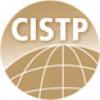news
Carnegie Funds Academic Work in Nuclear Disarmament
Primary tabs
Academic scholars have been largely absent from the current debate over prospects for eliminating nuclear weapons. Mainstays of teaching and research in political science and international relations programs during the Cold War, the subjects of nuclear strategy and deterrence, today, are either taken for granted or simply overlooked. Now, in the midst of increased momentum for a national and global non-proliferation agenda, Adam Stulberg has launched a project to reinvigorate scholarship on the issue: the "Program on Strategic Stability Evaluation (POSSE): Re-thinking Stability Criteria along the "Road to Zero" " .
The Carnegie Corporation of New York has provided a $650,000 grant to support the "Program on Strategic Stability Evaluation (POSSE): Re-thinking Stability Criteria along the "Road to Zero" .
Stulberg, Associate Professor in the Sam Nunn School of International Affairs and Co-Director of the Center for International Strategy, Technology, and Policy (CISTP), cites unprecedented interest and opportunity for advancing nuclear disarmament as the impetus for POSSE. In a speech in Prague April 5th, President Obama announced America's commitment to nuclear disarmament and a global agenda for pursuing that long-term vision. Obama noted that, despite the demise of the Cold War, "in a strange turn of history, the threat of global nuclear war has gone down, but the risk of a nuclear attack has gone up."
Stulberg says that the influence of advocates of a U.S. security policy centered on nuclear weapons is in decline. U.S. leaders including former Senator Sam Nunn, former Secretaries of State George P. Shultz and Henry Kissinger, and former Defense Secretary William Perry have helped spearhead efforts toward nuclear disarmament by policymakers across the globe. Stulberg also points to research that says that over seventy percent of former leaders of the national security establishment now openly acknowledge the anachronisms of what has been the U.S. strategic force posture and the importance of debating the fundamental value of nuclear weapons.
"Policy makers in the U.S. and other nuclear weapons possessors states (NWPS) now enjoy an unprecedented opportunity to transcend the "abolition paradox" as high-level political support now jibes with mounting concerns about nuclear proliferation, catastrophic terrorism and energy security," says Stulberg.
With co-Principal investigator William C. Potter, Director of the James Martin Center for Nonproliferation Studies at the Monterey Institute for International Studies, Stulberg plans for POSSE to forge a global network of intergenerational and interdisciplinary scholars including those from the Russian Federation and the People's Republic of China, and to bring them together with national security policy makers from the eight key nuclear weapons possessing states (NWPS). POSSE seeks to spur pursuit of new analytic frameworks and methodologies for examining future strategic needs attendant to deep cuts in nuclear weapons and risk reduction:
"We'll flesh out requirements for " minimum deterrence' among the existing NWPS and then explore criteria for strategic stability. That means looking at how far we can reduce nuclear weapons and maintain stability; incentives to discourage use of residual nuclear weapons; challenges for managing virtual or latent nuclear weapons capabilities; and the prospects and modalities for eliminating nuclear weapons amid a changing global landscape. We intend to fill knowledge gaps related to conditions and processes for managing conflict among multiple nuclear powers, all of which possess very different force postures/strategies. Our hope is to encourage development of the intellectual moorings for the difficult policy choices and strategic conditions need to advance both the visions and steps towards a stable future free from practical concerns about the use nuclear weapons."
The program will kick off with an academic workshop following the 2010 Nunn Forum and continue with successive policy workshops in Washington, D.C and on the Georgia Tech campus through the end of 2011. Applications to participate in the newly formed Program on Strategic Stability Evaluation (POSSE) are being accepted. Please access the link below for more information.
Status
- Workflow status: Published
- Created by: Rebecca Keane
- Created: 11/11/2009
- Modified By: Fletcher Moore
- Modified: 10/07/2016
Categories
User Data


